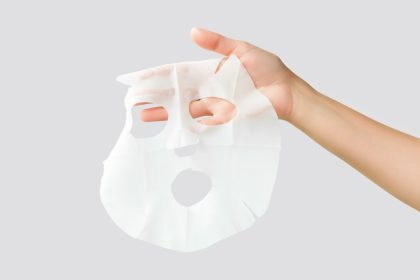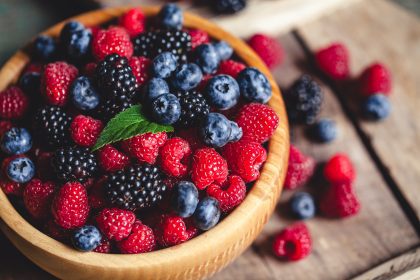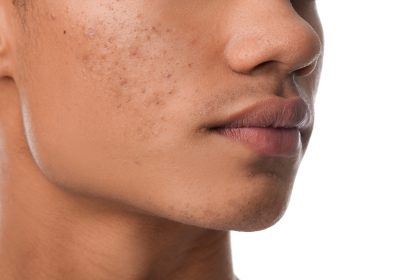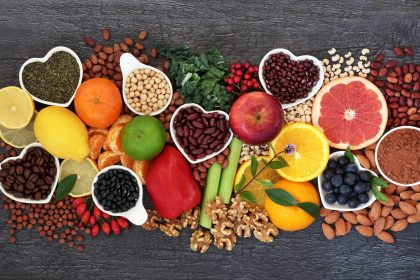Your expensive skincare routine might be fighting a losing battle against your breakfast choices. While you’re carefully applying serums and moisturizers, your diet could be undoing all that work from the inside out, creating inflammation, accelerating aging, and triggering skin problems that no amount of topical products can fix.
The connection between what you eat and how your skin looks isn’t just wellness marketing hype. Your skin is literally built from the nutrients you consume, and certain foods can either support healthy skin cell production or create internal chaos that shows up on your face within days.
Sugar creates a skin aging disaster
Sugar doesn’t just affect your waistline, it’s probably the biggest dietary villain for your skin. When you consume excess sugar, it triggers a process called glycation, where sugar molecules attach to collagen and elastin fibers in your skin. This basically makes your skin’s support structure stiff and brittle, leading to premature wrinkles and sagging.
The worst part is that this damage is cumulative and largely irreversible. Every time you consume high amounts of sugar, you’re essentially fast-forwarding your skin’s aging process. This includes obvious sources like candy and soda, but also hidden sugars in processed foods, sauces, and even healthy-seeming items like flavored yogurts and granola bars.
Dairy triggers inflammation and breakouts
For many people, dairy products create a perfect storm of skin problems. Milk contains hormones that can stimulate oil production and inflammation, leading to acne breakouts, particularly around the chin and jawline. The proteins in dairy can also trigger inflammatory responses in sensitive individuals.
This doesn’t mean everyone needs to eliminate dairy completely, but if you’re dealing with persistent skin issues, try cutting out dairy for a few weeks to see if your skin improves. Many people notice clearer skin within just a couple of weeks of reducing or eliminating dairy consumption.
Processed foods flood your system with skin enemies
Ultra-processed foods are loaded with preservatives, artificial additives, and inflammatory oils that your skin has to deal with. These foods often lack the nutrients your skin needs for repair and regeneration while contributing to systemic inflammation that shows up as redness, sensitivity, and accelerated aging.
The high sodium content in many processed foods can also cause water retention and puffiness, making your skin look swollen and tired. When your diet consists mainly of packaged, processed foods, your skin simply doesn’t have the building blocks it needs to maintain a healthy, glowing appearance.
Alcohol dehydrates and ages your skin
Alcohol is essentially a diuretic that pulls water out of your system, leaving your skin dehydrated and dull. But the damage goes beyond just dehydration. Alcohol also dilates blood vessels, which can lead to persistent redness and broken capillaries, particularly around the nose and cheeks.
Regular alcohol consumption also interferes with sleep quality, and poor sleep directly impacts your skin’s ability to repair and regenerate overnight. The combination of dehydration, inflammation, and disrupted sleep creates a triple threat for skin health.
High-glycemic foods spike insulin and oil production
Foods that cause rapid spikes in blood sugar, like white bread, pasta, and most breakfast cereals, trigger insulin responses that can increase oil production in your skin. This excess oil production creates the perfect environment for acne-causing bacteria to thrive.
Trans fats destroy skin elasticity
Found in many fried foods, baked goods, and margarine, trans fats promote inflammation throughout your body, including in your skin. They also interfere with your skin’s ability to maintain its protective barrier, leading to increased sensitivity and moisture loss.
Excess caffeine steals your skin’s hydration
While moderate caffeine consumption isn’t necessarily harmful, excessive amounts can dehydrate your skin and interfere with nutrient absorption. Too much caffeine can also disrupt sleep patterns, which directly impacts your skin’s overnight repair processes.
The hydration truth that changes everything
Here’s what most people get wrong about hydration and skin health. Drinking more water won’t magically fix dry skin if you’re not addressing the underlying causes of moisture loss. Your skin’s hydration depends more on your skin barrier function and the humidity in your environment than on how much water you drink.
However, chronic dehydration definitely affects your skin’s appearance, making it look dull and less plump. The key is consistent, adequate hydration rather than trying to flood your system with excessive amounts of water.
Foods that actually help your skin glow
The good news is that certain foods can genuinely improve your skin’s appearance. Omega-3 rich foods like salmon and walnuts reduce inflammation. Antioxidant-rich berries help protect against environmental damage. Vitamin C from citrus fruits supports collagen production.
The most effective approach is focusing on whole, unprocessed foods while minimizing the skin saboteurs. Your skin will thank you for every healthy choice you make.

















